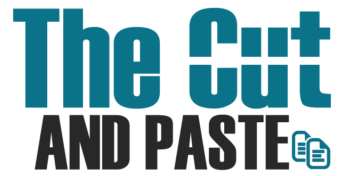
Starting to manage money early creates a strong foundation for future financial stability. Young adults often face the challenge of learning to handle expenses while avoiding unnecessary risks. Establishing good habits around spending and saving can lead to better opportunities when applying for loans, housing, or even jobs.
Use a Student Checking Account
To build credit as a student, developing responsible money management is essential. A student checking account helps accomplish this by providing a secure way to handle daily finances. Features like mobile banking, debit card access, and direct deposit encourage active engagement with personal funds and reduce the chance of overspending.
Many such accounts are specifically designed for individuals aged 14 to 25. These accounts typically have low or no monthly fees and come with tools that make it easy to monitor transactions. Regular use of this type of account can help develop budgeting skills and increase familiarity with managing various financial products.
Open a Secured Credit Card
Secured credit cards are one option available to young adults starting to establish their credit history. These cards require a refundable deposit that sets the spending limit, minimizing the risk of overspending. By using the card for small purchases and paying the full balance each month, a positive payment record is built.
This process demonstrates financial responsibility to credit reporting agencies. For those without previous credit experience, secured cards are often the safest way to start. The limited credit line encourages careful use, helping to avoid the pitfalls of excessive debt accumulation.
Access Financial Education Programs
Financial literacy is a vital component of building a robust financial future. Educational programs targeting young people cover topics such as budgeting, saving, and understanding the consequences of borrowing. Interactive courses can make these lessons more engaging and easier to grasp.
Such programs often provide practical examples, teaching how to avoid fees and the importance of timely payments. Acquiring this knowledge enables students to grasp the fundamental principles of finance. Students can develop positive money management habits.
Apply for Scholarships and Financial Incentives
Scholarships and financial awards encourage thoughtful money management. Some organizations offer scholarships for members attending college full-time, which can ease financial pressures while motivating long-term planning. These incentives also promote the careful use of resources and reduce reliance on credit.
Planning for educational expenses supports better money decisions. It helps limit unnecessary borrowing. Students who take advantage of these opportunities develop habits that serve them well beyond their school years.
Utilize Mobile and Online Banking Tools
Modern technology provides tools that simplify and enhance the management of money. Mobile apps and online banking platforms allow for instant balance checks, spending tracking, and setting up payment reminders. These functions help prevent missed due dates and associated fees.
Setting up automatic payments can help maintain a clean payment history, which positively contributes to one’s financial records. Being able to monitor accounts in real time helps maintain awareness and control over financial activities, reinforcing good money management habits.
What are Financial Institutions Doing to Help Students
Financial institutions offer a range of products tailored to meet the needs of young individuals, helping to foster responsible financial management. These offerings support the development of healthy money habits through accessible tools and educational resources.
- Student rewards checking accounts with convenient debit card access
- Secured credit cards for safely establishing a financial history
- Online educational resources covering important financial topics
- Scholarships for active members that encourage thoughtful planning for college expenses
- Digital banking tools that provide ease and transparency for daily account management
- Checking accounts tailored to young people that promote responsible spending and budgeting
Secured credit cards allow students to establish a positive credit history without overspending. Educational programs and scholarships provide valuable knowledge and incentives. Taking steps to build credit as a student without incurring debt involves consistent attention to healthy money management and using the right financial products. Combined efforts help create a strong foundation for financial success.
